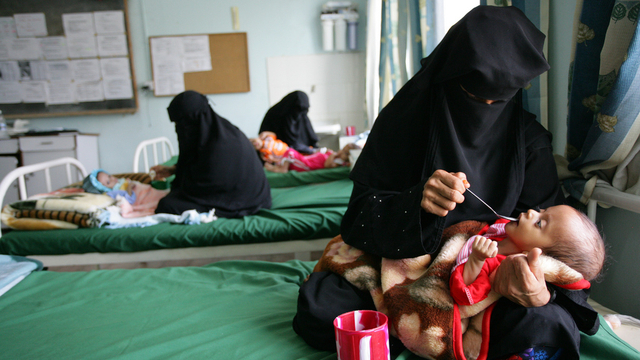
Yemen’s Service Sectors Warn Of Suspension Due To Saudi Siege
The service sectors in Yemen confirmed that health, electrical, water, transportation, hygiene and other services are threatened with suspension as a result of the lack of oil and the prevention of their entry.
The Saudi attack has imposed blockade on Yemen and prevents the entry of fuel ships to Hodeidah port.
During a press conference over the repercussions of the siege and piracy on fuel ships in the capital, Sana’a, the Acting Minister of Human Rights, Ali al-Dailami, explained that the United Nations did not perform its humanitarian duties as it should during seven years of attacked. He pointed out that the Saudi blockade on fuel ships and its imposed mechanisms fueled the war and prolongs it.
For his part, the Minister of Fisheries Wealth Muhammad Al-Zubayri said: “The United Nations does not have a decision and what it has been doing in Yemen for seven years is only to serve the Saudi attacked.”
He stressed that the Saudi blockade, with international complicity, wants to snatch the morsel from the mouths of Yemenis, however, Yemenis will not be satisfied with this matter.
In turn, Ahmed Al-Alii, Minister of Electricity, stressed that today Yemenis are interested in taking a serious stand against American arrogance and international complicity to confront their stifling siege that has affected everything in the country.
The statement of the joint conference of the various service sectors to find out the repercussions of the attacked, the blockade and piracy on oil ships renewed its condemnation of the continuing shameful international silence towards the blockade and piracy by the coalition of attacked on fuel ships, calling for the speedy release of all seized ships.
The statement blessed the Siege-breaking Operations, stressing that it is the only solution and way out for the Yemeni people to extract their right to live in dignity.
Since June 2020, the attacked and its allied government have continued to prevent fuel ships from entering the port of Hodeidah, except for a few ships that entered the port with a large time difference between each ship. Most of the ships left the place where they were being held by the forces of attacked, with their full cargo, after accumulating delay fines, exceeding the price of the cargo.
On other Hand, The coalition’s detention of dozens of fuel ships during more than a year and a half, and preventing them from entering the port of Hodeidah, despite being subject to inspection in accordance with the approved UN inspection and verification mechanism, and having obtained all the necessary permits from the UN inspection mission, caused a suffocating fuel crisis in all governorates. under the authority of Sana’a. Most of the important vital sectors, especially the health sector, are threatened with suspension, while work has been disrupted in many productive and service sectors, which caused economic losses of millions of dollars.
The fuel stations announced that their stocks of oil had run out. Hundreds of vehicles stood in long queues in front of these stations, hoping that shipments of oil would arrive in the coming days. Meanwhile, representatives of commercial power stations told subscribers in several neighborhoods of the capital, Sana’a, that these stations will have to cut off the power for hours during the day and night, as a result of the lack of diesel running these stations.
